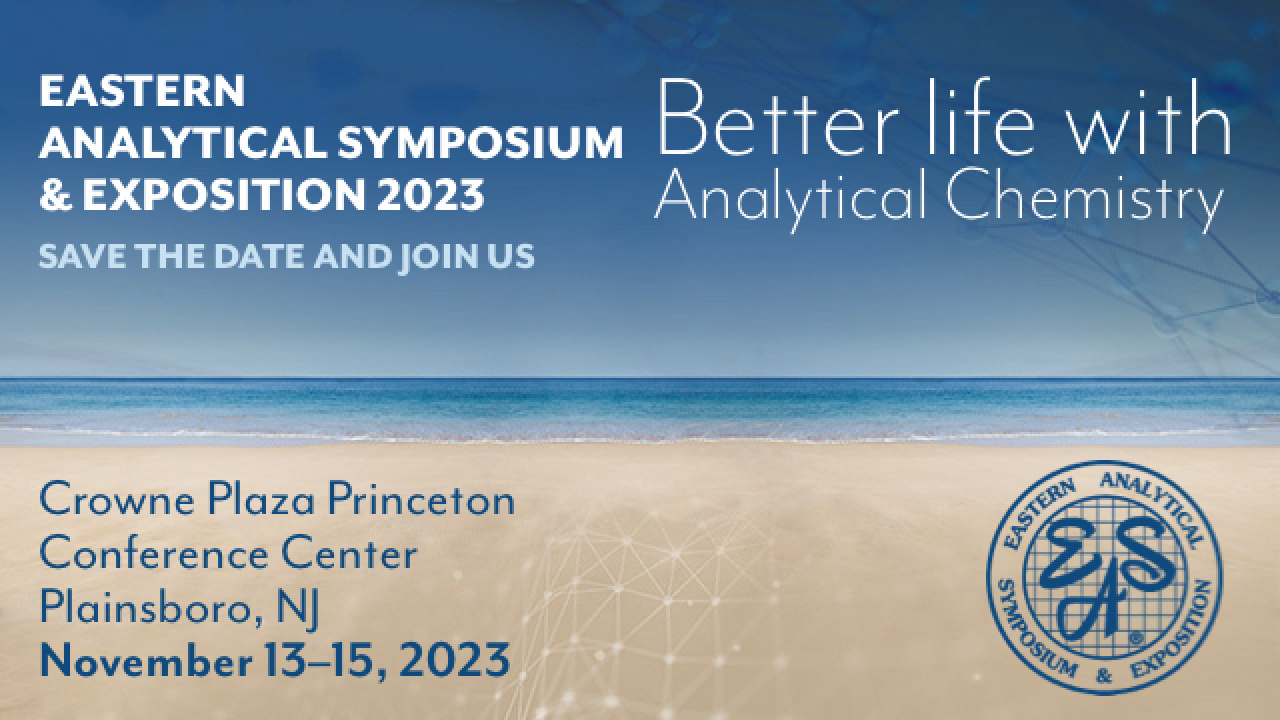
Short Course at EAS 2023: High-Performance Thin-Layer Chromatography an Alternative Approach to Quality: Standardization, Quantification and Automation
James Kababick & Wilmer Perra from the HPTLC Association North America Chapter will be teaching a short course at EAS on HPTLC. Check it out!
During Eastern Analyticall Symposium 2023 Short Courses will be offered November 12-15, 2023, at the Crowne Plaza Conference Center in Princeton, NJ. EAS will offer a variety of our courses.
EAS short courses are designed to help the practicing analyst develop new skills and enhance knowledge. Taught by experts, the short courses emphasize practical knowledge of a variety of important topics to help one keep current with best practices and new techniques. Whether you want to learn a new analytical technology, understand new regulations, explore an analytical field, or just brush up new concepts in your area of expertise, there is a course for you.
One-Day Course
Sunday, November 12; 8:30am – 5:00pm
James Kababick, Flora Research Laboratories, Grand Pass, OR
Dr. Wilmer Perera, CAMAG Scientific, Wilmington, NC
E23-07: High-Performance Thin-Layer Chromatography an Alternative Approach to Quality: Standardization, Quantification and Automation
COURSE DESCRIPTION
High-performance thin-layer chromatography (HPTLC) has become widely accepted as reliable analytical method for identification of botanicals in a cGxP environment. It is also an established quantitative tool in various fields of application. The unique features of HPTLC fingerprints and the new concept of comprehensive HPTLC fingerprinting offer complementary and orthogonal approaches to describing the quality of complex samples. Now, multiple fingerprints from complementary chromatographic systems and multiple detection modes based on fully automatic analyses are realty and could transfer HPTLC into a new technique of instrumental analysis applied to routine quality control.
This course will start with a brief discussion of concepts, parameters and unique features of standard HPTLC. Then, it will explore new possibilities that arise from rigorous standardization combined with full automation and modern approaches to intelligent data evaluation. Interactive case studies examine and highlight the advantages of the technique. Practical sessions emphasize strategies for developing, fine-tuning, and validating qualitative and quantitative HPTLC methods. An open forum will provide opportunities to discuss new concepts and arising possibilities.
Comments
Leave a comment